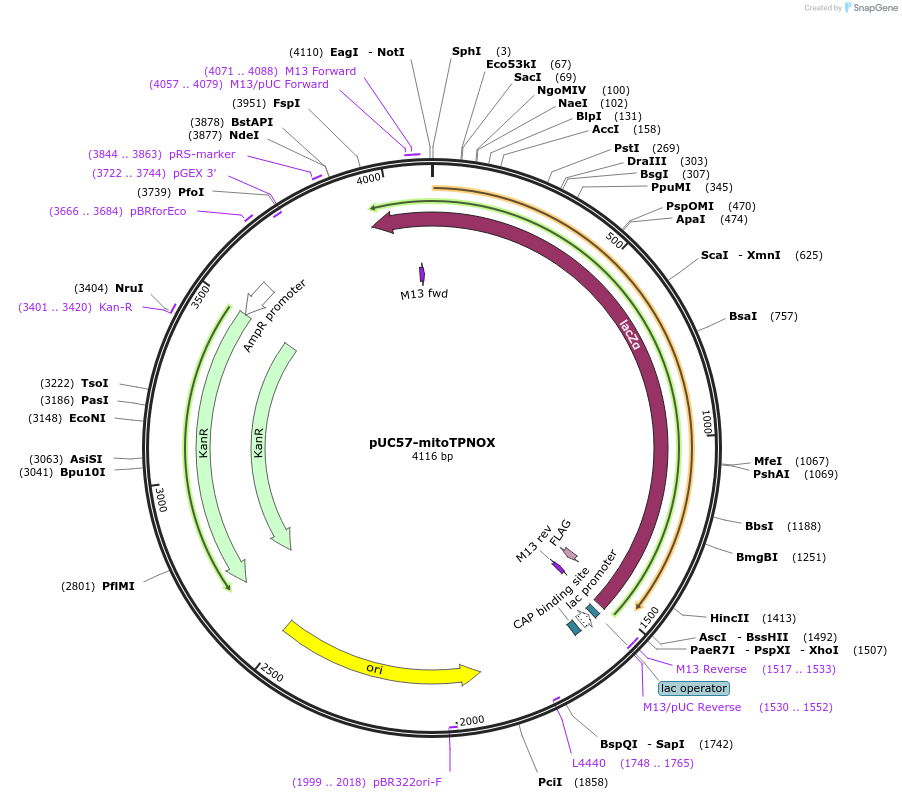-
PurposeThis plasmid contains human codon optimized sequence of Lactobacillus brevis mutant of a water-forming oxidase that can be used to increase NADP+/NADPH ratio in mammalian cells.
-
Depositing Lab
-
Sequence Information
Ordering
| Item | Catalog # | Description | Quantity | Price (USD) | |
|---|---|---|---|---|---|
| Plasmid | 87854 | Standard format: Plasmid sent in bacteria as agar stab | 1 | $89 | |
Backbone
-
Vector backbonepUC57
-
Backbone manufacturerGeneWiz
- Backbone size w/o insert (bp) 2710
- Total vector size (bp) 4200
-
Vector typeBacterial Expression
Growth in Bacteria
-
Bacterial Resistance(s)Kanamycin, 50 μg/mL
-
Growth Temperature37°C
-
Growth Strain(s)DH5alpha
-
Copy numberHigh Copy
Gene/Insert
-
Gene/Insert namemitoTPNOX
-
Alt nameNADPH specific mutant of mitoLbNOX
-
SpeciesH.sapiens codon optimized bacterial gene
-
Insert Size (bp)1490
-
Tags
/ Fusion Proteins
- C-terminal FLAG tag with a linker (C terminal on insert)
- mitochondrial targeting sequence (N terminal on insert)
Cloning Information
- Cloning method Restriction Enzyme
- 5′ cloning site NotI (not destroyed)
- 3′ cloning site MluI (not destroyed)
- 5′ sequencing primer TGT AAA ACG ACG GCC AGT
- 3′ sequencing primer CAG GAA ACA GCT ATG AC
- (Common Sequencing Primers)
Resource Information
-
Articles Citing this Plasmid
Terms and Licenses
-
Academic/Nonprofit Terms
-
Industry Terms
- Not Available to Industry
Trademarks:
- Zeocin® is an InvivoGen trademark.
These plasmids were created by your colleagues. Please acknowledge the Principal Investigator, cite the article in which the plasmids were described, and include Addgene in the Materials and Methods of your future publications.
-
For your Materials & Methods section:
pUC57-mitoTPNOX was a gift from Vamsi Mootha (Addgene plasmid # 87854 ; http://n2t.net/addgene:87854 ; RRID:Addgene_87854) -
For your References section:
A genetically encoded tool for manipulation of NADP+/NADPH in living cells. Cracan V, Titov DV, Shen H, Grabarek Z, Mootha VK. Nat Chem Biol. 2017 Aug 7. doi: 10.1038/nchembio.2454. 10.1038/nchembio.2454 PubMed 28805804



